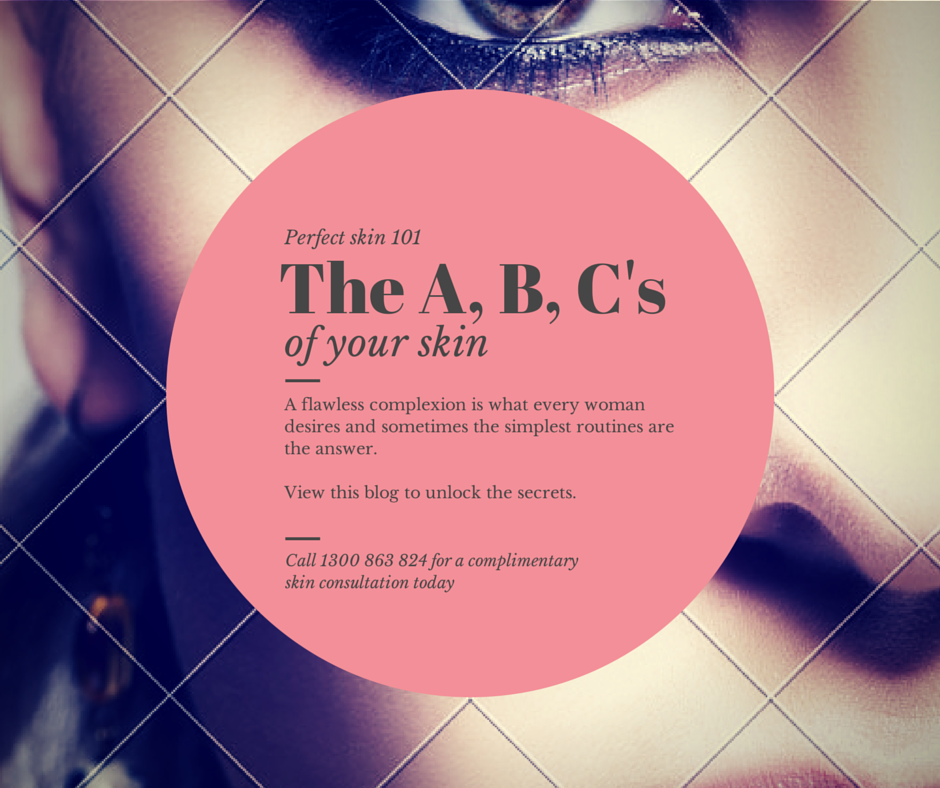The A, B, C’s of your skin care
Perfect skin 101
The A, B, C’s
of your skin

Understanding your skin’s needs can be frustrating at best. With advertising for skin products sprawled across magazines and billboards how do you know what to use? It’s simple, these key ingredients will halt your ageing and give you the glowing skin you’ve been looking for!
Vitamin A.
Vitamin A is used as an Anti Ageing Agent. From the age of about 25-30 the skins natural turnover process starts to slow dramatically. When we are young cell turnover cycle is approx every 28 days, this cycle is important as it keeps the skin healthy, moist and supple. When an older patient uses Vitamin A it encourages the cell turnover rate to increase again helping the skin to appear more youthful. There are 2 common types of Vitamin A available and they are; Retinol and Retinaldehyde. Both types of Vitamin A have different benefits for different skin types. To learn more about the benefits of Vitamin A click here.
Vitamin B.
Vitamin B promotes a strong Barrier function of the skin, is a super hydrator and is an effective anti-inflammatory. These functions of Vitamin B help improve skins suffering from Rosacea, Acne, Eczema/Dermatitis, Sun Damage, Ageing, Dry Skin and Hyper Pigmentation. Vitamin B’s scientific name is Niacinamide and B3.
Vitamin C.
Vitamin C is used in skin care to aid collagen production and skin lightening. It does this by helping the skin fibroblasts to increase collagen amounts. Vitamin C is also a wonderful antioxidant, protecting the skin from free radical damage. Types of Vitamin C that can be found in Skin Care are; L-ascorbate, Ascorbyl Palmitate, Ascorbyl Tetraisopalmitate, Tetraheydecyl Ascorbate and Ascorbyl Phosphates. To learn more about Vitamin C in skincare click here.
Sunscreen.
Sunscreen should be a part of every daily routine even in winter for many reasons. Sunscreen protects the skin from Sun Damage that can cause multiple skin problems including Sun spots, Freckles, Pigmentation, Solar Keratosis and Skin Cancer. Look out for a high rating of UVA and UVB in your sunscreen. The UVA rays cause ageing of the skin including wrinkles deep in the skin, while UVB rays are responsible for superficial damage, burning the skin and causing pigmentation.
